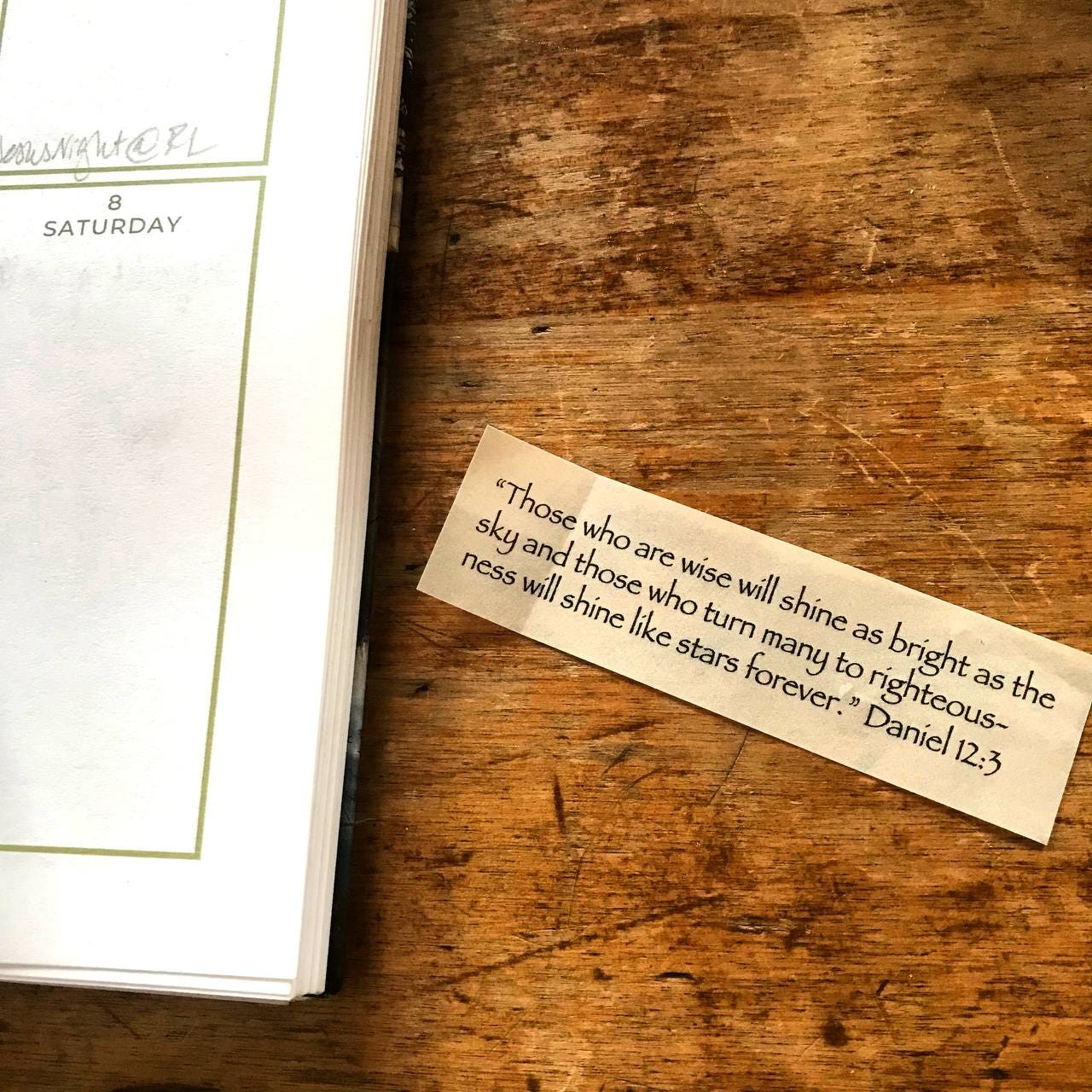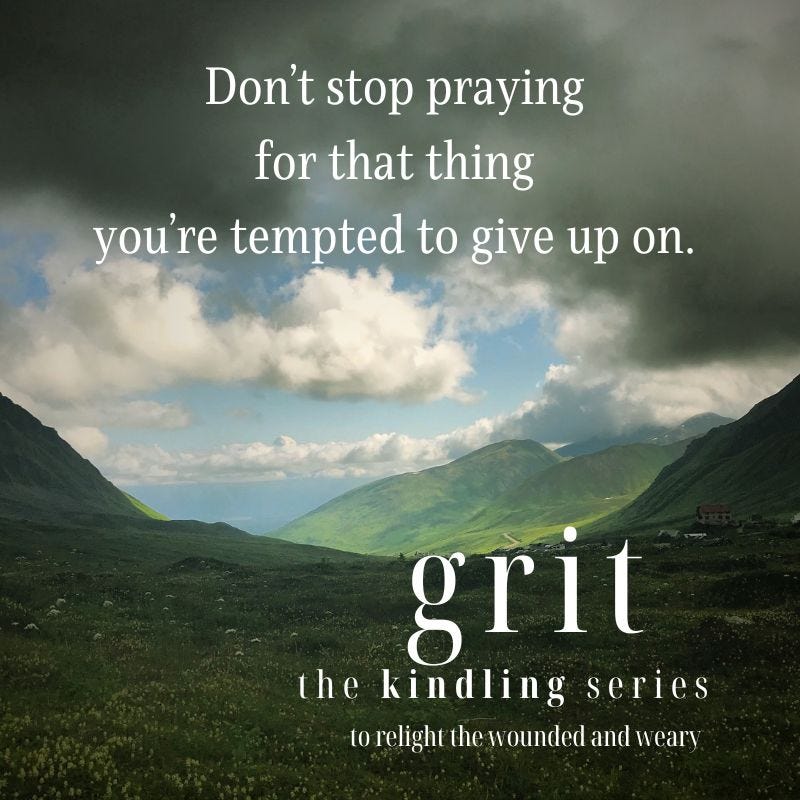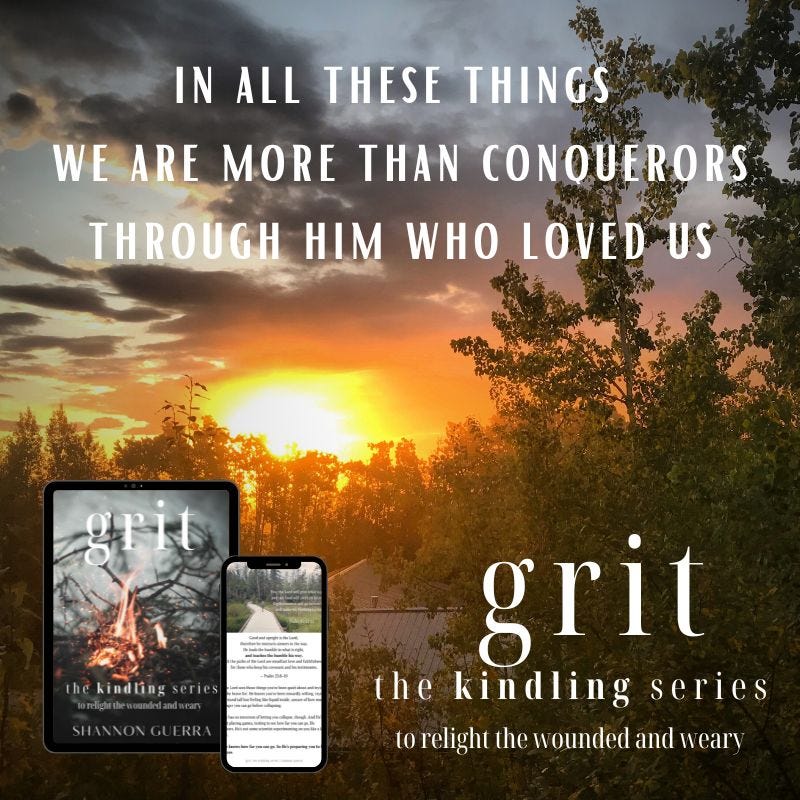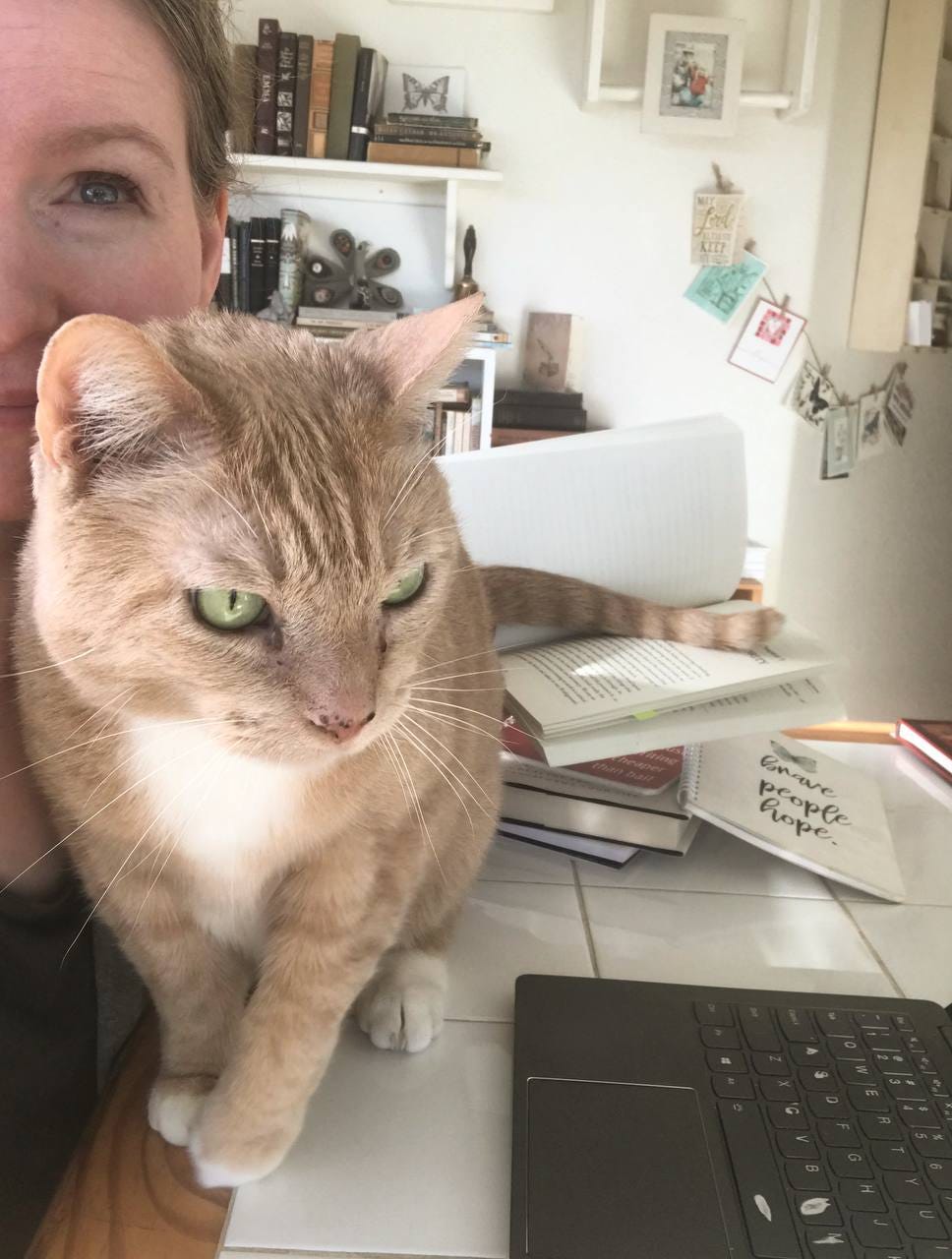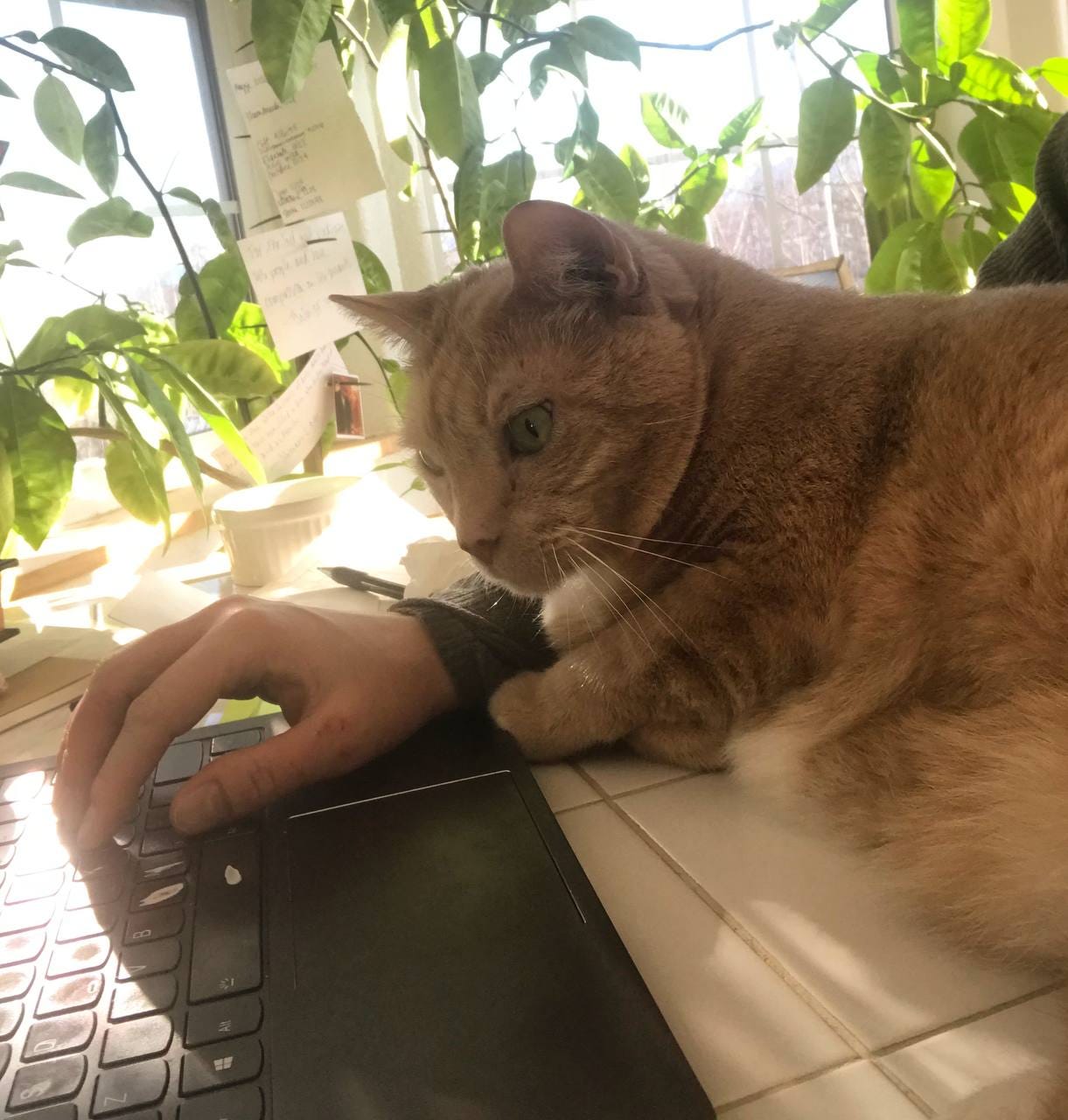I hate dealing with haters. Or as our 6-year-old says, the h-word.
But doing most anything gets easier with more experience, and in the internet world even the most innocent posts rile up opposition.
Like recently when I shared a few Bible verses online – which I do daily – and someone thought it was important to remind me that Paul said women aren’t supposed to teach, and that I should pray about it, and that I should also cover my head while doing so. Bless his heart.

In the last few years, I’ve had a lot of hate from people who misunderstand a few verses in the Bible at the expense of the entirety of scripture. I’ve been attacked for sharing short videos online with prayer and personal testimonies. People have called me horrible names for talking about what I’m reading in the Bible and how it impacted me, or for sharing different connections the Lord revealed to me or things that He said to me (who knew there were so many Christians who don’t think the Lord speaks through anything or to anyone except through the physical paper in their KJV?…but that’s a whole other tangent).
And none of them agree. The responses are illogical and varied:
- Some of them are okay with writing but not speaking (because writing is silent).
- Some deem it acceptable to share online (Oh thank you, gracious ones…*curtsies*) as long as it’s only in a women’s forum.
- Some allow sharing a testimony, but don’t you dare mention Greek or Hebrew in reference to Scripture because that could be seen as teaching, donchaknow.
- Some are fine with women speaking or writing or teaching on any topic in the world as long as it’s not spiritual, because as soon as you mention Jesus or God or Holy Spirit or prayer or anything else, it becomes preaching and triggers the 1 Timothy 2:12 alarm.
- Others condone sharing scripture and commentary as long as you stand on one foot while typing with your non-dominant hand.
You get the picture. I made the last one up, but the rest are based on actual arguments I’ve encountered.
I’ve been opposed for all kinds of things that actually do resemble teaching and preaching – like, um, teaching and preaching, I guess – but never by someone who understood the Bible in context. Remarkably, it’s only by those who view Scripture through a Western, English-speaking lens, because of course that’s what Jesus and Paul used. Hee hee.
But never have I ever been opposed by someone who also professes to be a believer fighting for expansion of the Kingdom for simply copying a few verses and posting them online. Until last week.
Slippery slope, eh? This is what legalism (including patriarchy, or complementarianism, or whatever your jargon prefers) leads to.
Irony abounds though, because many choose the side that silences women out of fear of the slippery slope on the other extreme – because ohmygosh, if women realized that they, too, have authority and are part of the priesthood and are also the chosen people sent to go and tell, it might result in bra burning, blue-haired feminism, and who knows what other chaos and nonsense.
We can’t have that. No, we have to control, instead.
So here, at least, we see the culprit: Fear. And isn’t that interesting.
What’s also interesting is that it doesn’t work at all. We have seen many slippery slopes – from drag queen storytimes to pastors caught in sex scandals – but women who just want to tell people about Jesus generally aren’t the ones sliding down them.
Fear that manifests as control is usually birthed out of offense. It happens on both sides.
People see something they don’t like or don’t approve of or don’t understand, and they get offended. You’ll know who they are right away; they’re the ones who refuse to keep reading, or only do so to leave angry, insulting comments (or they leave in the middle of the sermon and write condescending emails on Monday). They refuse to learn, refuse to move forward, refuse to allow their preconceived notions to be challenged.
But also, they refuse to trust that God knows and can handle what “those other people” are doing and thinking, and generally demand that others do and think the way they do.
This is a sad situation because instead of worshiping (which requires trusting) the Creator in the fullness of who He is and what He did, those acting out of fearful control choose instead to worship (and put their trust in) a few isolated verses at the expense of the rest of Scripture, and then use them to beat down the half of the Kingdom who possess ovaries.
And again, the irony: Their misapplication only fuels that blue-haired feminism they so despise.
How is that working out for us, Church?
Do those who misunderstand those few verses in the Bible – and yet can’t even agree among themselves – get to dictate which of Jesus’ teachings and commands apply to everyone, and which are only for men and thus forbidden to women?
Do we really think that the full gospel only applies to men?
Any honest student of the Bible will admit that there are sections here and there that seem confusing or contradictory on the surface. How should we respond?
One option is to dig deeper to reconcile and understand. Another option is to simply err on the side of silencing and prohibiting half the Kingdom from sharing the good news.
But are we not also the Temple of the Living God?
But you are a chosen people, a royal priesthood, a holy nation, God’s own people, in order that you may proclaim the excellence of him who called you out of darkness into his marvelous light.
– 1 Peter 2:9
In order that you may proclaim…Was this verse written only for men? Or are women not also called to proclaim the excellence of Him who called us out of darkness and into His marvelous light?
No, no, don’t give me any BS about the many quiet, demure ways women can “proclaim.” I know. I love making chowder for a crowd, quietly praying with others, tucking my children in at night, and interceding on behalf of the world around me. I can even make a knock-your-socks-off grilled cheese sandwich. Those are some of my very favorite things.
But I also really like talking about Jesus.
And I’ve become quite fond of looking up the Bible’s original Greek and Hebrew.
Proclaim here in the Greek means to declare, to tell out, to announce publicly. So it requires a bit of volume. It’s clear that those particular men (and some women) who demand silence are sitting on the wrong side of both history and scripture.
Fortunately, when people stand in opposition to God’s commands, we are called to obey God rather than men. We’re in good company here:
So [the religious leaders] called them and ordered them not to speak or teach at all in the name of Jesus.
But Peter and John answered them, “Whether it is right in God’s sight to listen to you rather than to God, you must judge; for we cannot keep from speaking about what we have seen and heard.”
– Acts 4:18-20
It’s getting late. Writers check their word counts like executives glance at their watches, and we’re at 1200 words already and just look at how you’re hanging in there. Well done, high five.
But here we are, and I haven’t even gotten to my notes yet about what I really wanted to share with you.
So first, quickly, there are tons of resources that explain the context, language, and cultural value of the cherry-picked verses often misused to keep women silent (here, here, here, and here are some excellent ones). You should read them if you’re interested (and if you’re not, you should definitely read them).
With all that out of the way – this is how we work smarter, not harder, because most of the trolls have probably left the room by now – I’ll tell you about my most recent trip through the end of Romans, written by Paul, who also authored most of those often misused verses.
** opens notes, cracks knuckles, rubs hands together **
Romans is 16 chapters long and we’re starting in the middle of 15. I’ve read it a gajillion times before (okay, probably only twenty) but never noticed this:
I myself feel confident about you, my brothers and sisters, that you yourselves are full of goodness, filled with all knowledge, and able to instruct one another.
– Romans 15:14
Huh. Instructing is a lot like teaching, and “one another” means they are not segregated (like into sexes), but together.
Okay, carry on. Now we move to chapter 16, and right off we see this:
I commend to you our sister Phoebe, a deacon of the church at Cenchreae, so that you may welcome her in the Lord, as is fitting for the saints, and help her in whatever she may require from you, for she has been a benefactor of many and of myself as well.
– Romans 16:1-2
This woman, Phoebe, was a deacon. Some translations say “servant” but the Greek word is diakonos, the same used for “servant” or “minister” all throughout the gospels and the rest of the New Testament.
She was also a “benefactor” – which is sort of a vague term, but in the Greek (yay, fun!) it’s prostatis, and more specifically it means patroness, helper, protector, or guardian. Paul says she was this for him and others. Because of the language of this text, many believe it was Phoebe who delivered and read Paul’s letter to the Romans – and that, of course, would’ve required speaking aloud, ahem.
Moving on:
Greet Prisca and Aquila, my coworkers in Christ Jesus…
– Romans 16:3
First, if you’re thinking of Priscilla and Aquila, yes, same people. If you’re thinking that Prisca is a short nickname for Priscilla (like I did), it’s actually the other way around. Prisca was her name, Priscilla was a nickname – adding “illa” was sort of like changing Anne to Annie.
Secondly though, and more relevant to our discussion, she’s mentioned before her husband. That stands out as odd and notable for their culture, which would generally have put the man’s name first. Putting her name first (which happens four out of the five times they’re mentioned together) indicates her role in teaching and ministry was more prominent than her husband’s.
Okay, skip a few verses mentioning a couple more people, and we land on this:
Greet Andronicus and Junia, my fellow Israelites who were in prison with me; they are prominent among the apostles, and they were in Christ before I was.
– Romans 16:7
Junia was an apostle. This is shocking and abhorrent to some people, and they run to certain translations that watered the phrasing down to make it sound like she was simply known to the apostles. But no, we look at the original language and she was among the apostles – among, meaning she was part of that group, and it takes some theological backflips to say she was just there with them but not actually one of them.
Paul mentions many men and women in this chapter, showing clearly that they’re working side by side in ministry and leadership.
Then he finishes his acknowledgments and immediately launches into this, and it’s no accident:
I urge you, brothers and sisters, to keep an eye on those who create dissensions and hindrances, in opposition to the teaching that you have learned; avoid them.
– Romans 16:17
What is more divisive than telling half the Kingdom they cannot participate in all of the Great Commission? What is more hindering than telling that half to stay quiet?
For such people do not serve our Lord Christ but their own appetites, and by smooth talk and flattery they deceive the hearts of the simple-minded.
– Romans 16:18
To be fair, not all who teach this are purposefully serving their own appetites – they are just passing along what they themselves were taught, and they want to do the right thing, and that’s to be commended. But that mis-teaching has been based in self-interest, deceiving the naive – or, “akakos,” meaning innocent, guileless, simple…those who are focused on doing the right thing but without deeper understanding or knowledge.
And we need to pursue deeper understanding and knowledge. We don’t want to just be right, but righteous.
For your obedience is known to all; therefore, I rejoice over you, but I want you to be wise in what is good and guileless in what is evil. The God of peace will shortly crush Satan under your feet. The grace of our Lord Jesus Christ be with you.
– Romans 16:19-20
With the state of events right now, it is no wonder that the enemy would try to use the very scripture Christians revere to diminish the spread of the gospel. What is so slimy though, is that he has managed to use many in the Church to perpetrate the quelling of it.
It boggles the mind to see how out of touch that mindset is with not only scripture, but also the dire needs of a world on fire. People are living and dying amid wars, persecutions, sickness, and depravity, so how can anyone in the Kingdom possibly justify telling 50% of Christians to be quiet about Jesus, and just let them handle it?
We can’t. We were never meant to.
So go into all the world, and tell.



